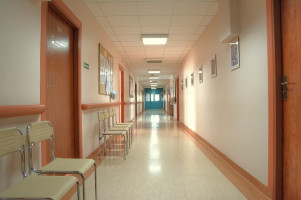
London, UK, 3 November 2020: The impact of delays in cancer diagnostic services caused by the COVID-19 pandemic are emerging now with an increase in patients seeking treatment for later stage conditions.
Breast cancer diagnostic services in the UK can detect over 20,000 cancers per year in the UK, saving thousands of lives.
The cancer backlog means that thousands of people may be living with cancer without realising it, increasing the risk of an upward stage migration in their cancers, according to a leading expert on cancer.
Referrals for cancer were down 15% in August compared with the previous year, but it was 28% down for breast cancer, in part due to the collapse in diagnostic services.
The impact on cancer diagnostics from Covid-19 could mean up to 9,000 women have breast cancer without being aware of it.
Professor Karol Sikora, chief medical officer at Rutherford Health and the former director of the cancer programme at the WHO, said: “This is a very serious crisis and with the return of Covid-19 restrictions in most parts of the country, the situation for breast cancer care could become dire.
“We are witnessing the consequences of Covid-19 restrictions from earlier in the year in the form of late stage cancers.
Our Rutherford Cancer Centre network has experienced a sharp increase in the number of enquiries from breast cancer patients, and a significant number of them appear to be late stage cancers.
“As we grapple with a second wave of Covid-19 transmission and another lockdown in England, the NHS potentially faces the agonising prospect of having to reduce cancer services once more, either to make capacity for Covid-19 ill patients or to reduce the risk of cross infection.
It is vital that we do not allow this to happen under any circumstances.
“Cancer care services should not only be functioning as they were pre-Covid, but should be expanded so that we can reduce the backlog we have already accumulated.
Thousands of patients may be at risk due to the current backlog and a repeat of this would be disastrous for cancer patients.
It appears that breast cancer patients are already being disproportionately impacted by this.
As the second most common cancer in the UK, we cannot allow breast cancer to become the forgotten casualty of this pandemic.”
The World Cancer Declaration recognises that to make major reductions in premature deaths, innovative education and training opportunities for healthcare workers in all disciplines of cancer control need to improve significantly.
ecancer plays a critical part in improving access to education for medical professionals.
Every day we help doctors, nurses, patients and their advocates to further their knowledge and improve the quality of care. Please make a donation to support our ongoing work.
Thank you for your support.